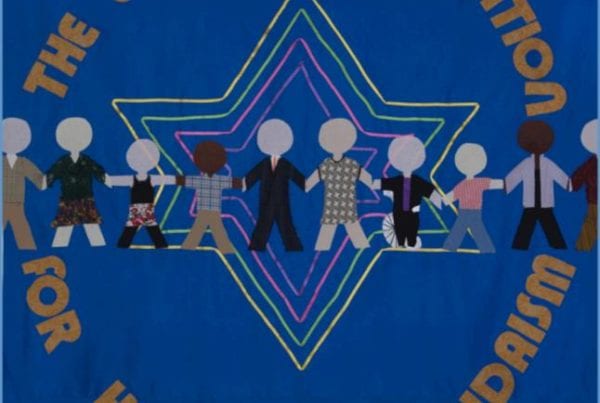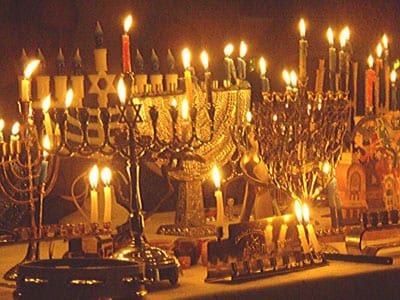The Possibility of Change
Gladys Foxe, L.C.S.W.. L.P., Ph.D.
(Originally delivered, in a longer version, as “How I got my politics”, for Shabbat May 2013)
Thank you Peter, and my gratitude to my beloved congregation, that has helped me shape my thoughts for this talk. In looking back on “How I Got My Politics”, I first looked to my past. And the images were cloudy. I think that my parents felt that it was luxury to think about anything but work. We were a poor family and our particular poor family—as best as I can remember and try to put it into words—had a poor or begrudging attitude towards others. My family was personally honorable, nominally Democrats. But the belief that the world could change a little through their efforts was a foreign concept. They thought that thinking about the world was for people that had the leisure for it. Trying to remember my early years includes no recollection of people talking politics, social change, or civic responsibility, or putting such ideas into a living context.
I think they would have said that charity, political activism, and social change was for ‘the big shots’, those with time or money on their hands. Philanthropy, as they would have typecast it, was for the wealthy. And ‘giving’ belonged to those, say, who donated out loud at synagogue services, or those who held board memberships in foundations supporting Israel. They felt they didn’t have the luxury for that. But I wonder if they didn’t feel that they had too much at stake and too little security to risk certain actions and ideas. In fact, ‘don’t rock the boat’ was one of their expressions. Against that background I grew up as one might expect: no connection from my beliefs to actions and mostly thinking I would leave the high-minded speculations to others.
Three experiences changed my mind.
The first was my marriage. My husband was from a similarly poor background. Together we were greedy, ambitious and very successful. And I discovered something hanging out with the rich, a least the rich that I knew. I learned that having enough was never enough. I learned that if you can get what you want by cheating, well that’s just so much more fun isn’t it. And that everything that the government gives you is your due. Anything others get is free loading. I experienced a growing disgust but I was silent. I was not yet ready to risk all I felt I had at stake.
The second experience that began to change my mind was my son’s education He attended a Quaker prep school outside Philadelphia and one of the key values that the school embraced was making a contribution to a better society. As one example, the school always had a boy president and a girl president for every class. Perhaps this was only a small gesture in favor of gender equality but I was impressed by the idea of putting beliefs into the structure and practice of daily life, and the feeling lingered.
It was getting harder to keep silent. I began to identify a disconnect between my beliefs and how I was living and, as some of you already know, I changed my marital status, my vocation, my financial picture and got serious about ‘the meaning of life’. Letting oneself know what you know can be very powerful. Perhaps I now felt that the core of my life was at risk if I didn’t act.
Third: Something remarkable happened in my career as a psychoananlyst/psychotherapist that also shaped my life and my politics. It has to do with one particular patient that led to a major conversion point in my attempt to live a more committed and responsible life.
Here’s what happened. I, an American-born descendant of German Jews, became the therapist for a man of my own age, also American born who, I was to discover, was the descendant of German Nazis. He was my patient for 10 years. Through that experience, I began to connect with the history – past and present – of my own German Jewish family, and sifted through memories of the Holocaust as experienced by the American Jewish descendants. I found that both a cousin and a cousin’s cousin had married German Protestant men. One of these men, Hans, has been active in what I would call German and Jewish reparative understanding. He has put in time and real action in trying to come to terms with his parents’ actions and his own feelings of guilt. He has turned and faced knowing what he knows which must often be unbearable. Although there is so much to say about all this, there is one particular conversation that I had with cousin Hans that affected me deeply.
At one point, I asked Hans if he had ever wanted to talk to his parents about their Nazi past. He said that he wanted to bring up the subject during the Vietnam War because of two recurrent images he saw often on television. When he saw TV pictures of skinny Vietnamese staring out from behind chain link fences, he was reminded of pictures of concentration camp inmates. When he saw on television Americans protesting, he mentally contrasted the intensity of the American anti-war protests with the submissiveness of his parents’ Germany.
Now while I believe that almost nothing can equal the horror of what Germans did to Jews, a question arose within me: What had I done back then, during the sixties and seeing the same pictures, to speak out about a wrong that I was literally seeing enacted on the evening news. And the answer I had to face was that I had done nothing. Silence during the struggle for Civil Rights, disconnection about being against the war. Suddenly, now, I felt called to task, by myself, and found wanting.
Hans had triggered in me a clear directive to self that resulted in the personal goal to no longer be silent. And, very imperfectly I resolved to speak out, to march, to bear witness, something. Now this is a promise to self that I keep very, imperfectly but I try now to live more decently.
Sadly, there are now more wars, more on-going horrors and atrocities, and I have other chances to act, as do all of us in our daily lives. Sometimes I think, “Do I have to prove to myself that I am better than a Nazi. No, I know I’m better than a Nazi. But perhaps I do have to prove to myself that I am better than those who silently allowed the Nazis to gain power hold sway. Maybe I want to be as brave as my cousin who asked difficult questions of his own family. Or perhaps I want to honor my own family. They struggled to give me what they would have called all the ‘advantages’ and one of the ways I can thank them is to use those advantages to go where perhaps they felt they couldn’t risk going.
All I can say for sure is that when I hear those powerful silent questions addressed from me to me, I must try to stay more connected to those calls and try to answer more honorably. I want no more silences to account for.



